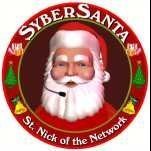-
Similar Content
-
Get command line parameters Utility v1.0.3.0 - Retrieve Switches of command line Tools - Update of 2025-09-22
By wakillon,
- 18 replies
- 17,968 views
-
- 20 replies
- 6,610 views
-
- 2 replies
- 73,769 views
-
- 2 replies
- 4,227 views
-
- 7 replies
- 6,433 views
-



.thumb.jpg.bcfb48e92c107ce0a0b880bf95ad6da9.jpg)


Recommended Posts
Create an account or sign in to comment
You need to be a member in order to leave a comment
Create an account
Sign up for a new account in our community. It's easy!
Register a new accountSign in
Already have an account? Sign in here.
Sign In Now